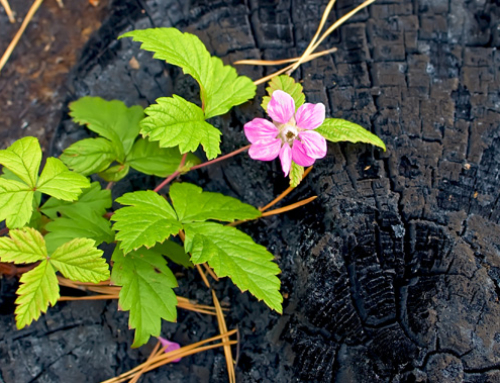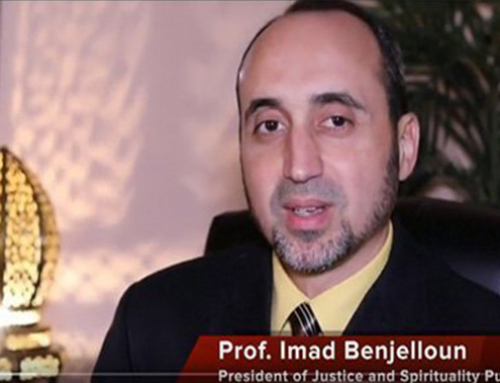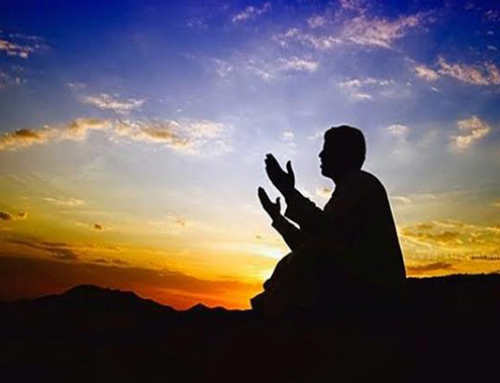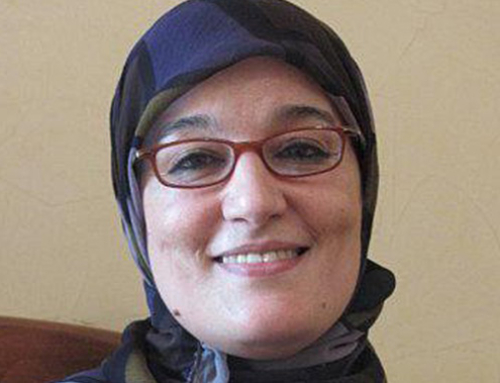Abu Haamid al-Ghazaali
February 12, 2024
That death does not constitute the extinction of the spirit and its consciousness is proved by a number of Verses and Traditions. Among the former is [the text| which treats of the Martyrs, wherein God (Exalted is He!) says, And consider not those who were slain in the way of God to be dead. Rather they are alive, nourished in the presence of their Lord, all rejoicing. ‘Āl-‘Imrān, 169.
And when the heroes of Quraysh were slain on the day of Badr, the Messenger of God -God bless him and grant him peace- called out to them and said, “O So-and-so! O So-and-so! O So-and-so! I have found what my Lord promised me to be true, so have you found what He promised you to be true also?’ He was asked, “O Messenger of God! Are you calling out to them when they are dead?’ and he replied -God bless him and grant him peace-, ‘By Him in Whose Hand lies my soul, they hear my words more clearly than you, it is only that they are unable to make reply’.
This is a scriptural text which evidences the survival of the spirit of the wretched, and of its biding consciousness, just as the verse does for the spirits of the Martyrs. The dead must needs be either happy or woeful. The Prophet ( God bless him and grant him peace) once said, ‘The grave is either one of the chasms of Hell or one of the gardens of Heaven’.
This text unambiguously states that death signifies no more than a change of state, and that the future sorrow or felicity of the dead man manifests itself immediately upon death without any delay whatsoever, although certain secondary kinds of punishment and reward are deferred.
Anas –God be well pleased with him, relates that the Prophet -God bless him and grant him peace- said, “Death is the Resurrection; whoever dies, his resurrection has come.”
And he said also -God bless him and grant him peace-, “When one of you dies his [future] seat is displayed before him morning and evening: should he be of the people of Heaven, then it is situated among them, while should he be of the people of Hell, then it is situated among them. And he will be told, ‘This is your seat until you are resurrected to meet Him on the Day of Resurrection’.”
It is quite obvious to see what states of torment and bliss would arise merely from seeing one’s seat.
Said Abu Qays –God have mercy on him, “We were once in the company of ‘Alqama during a funeral, when he said, ‘As far as he is concerned, his resurrection has come’.”
Said Ali -God ennoble his face-, “It is not lawful for any soul to leave this world until it knows whether it is to be of the dwellers of Heaven or of Hell’.
Said Masrūq –God have mercy on him, “There is no-one I envy more than a believer in his tomb, for he has found rest from the exertions of the world and safety from the chastisement of God.”
Said Ya‘lā b. al-Walīd –God be well pleased with him, “I was walking one day with Abu d-Dardā’, and asked him, ‘What do you like to happen to those you like?’ “Death,” he replied. ‘But if one has not died yet?’ I asked, and he answered, ‘That his progeny and wealth should be scanty. I feel a liking for death because it is liked only by the believer whom it releases from his imprisonment. And I like one’s progeny and wealth to be scanty because these things are a trial, and can occasion familiarity with this world, and familiarity with that which must one day be left behind is the very extremity of sorrow. All that is other than God, His remembrance, and familiarity with Him must needs be abandoned upon one’s death’.”
For this reason Abdu Allah b. ‘Amr said, “When his soul, or spirit, emerges, the believer feels like a man who was in a prison, from which he was released to travel about and take pleasure in the world.”
This narrative [just mentioned] refers to the state of the man who withdrew from the world, being wearied of it and finding no pleasure in it save that which is in the remembrance of God (Exalted is He!), and who was kept by the distractions of the world from his Beloved, and who was hurt by the vicissitudes of his desires. In death he found a release from every harmful thing, and won unrestricted solitude with his Beloved, Who was ever his source of consolation.
How right it is that this should be the pinnacle of bliss and beatitude! The most perfect of delights is that which is the lot of the Martyrs who are slain in the way of God. For when they advance into battle they cut themselves off from any concern with the attachments of the world in their yearning to meet God, happy to be killed for the sake of obtaining His pleasure. Should such a man think upon the world, he would know that he has sold it willingly for the Hereafter, and the seller’s heart never inclines to that which has been sold. And when he thinks upon the Hereafter, he knows that he had longed for it, and has now purchased it. How great, then, is his rejoicing at that which he has bought when he comes to behold it, and how paltry is his interest in what he has sold when from it he takes his leave!
Full dedication of the heart to the love of God may well occur in certain circumstances, but death may not overtake one in such a state before one changes again. Combat is one of the causes of death, and is also a means of coming to death in this state. For this reason one’s bliss is intense, since bliss means the attainment of desire. God (Exalted is He!) has said, Theirs is whatsoever they desire an-Naḥl,57; and this is the most comprehensive description of the delights to be enjoyed by the people of Heaven.
Similarly, the greatest torment takes place when a man is denied what he desires, just as God (Exalted is He!) has declared, And they were barred from what they had desired Saba’,54. In turn, this is the most comprehensive expression of the punishments endured by the people of Hell.
This delight is attained by the martyr as soon as his breath is cut short. This is a matter which has been disclosed to the Sufis [the Masters of Hearts/arbābu l-qulūb] by virtue of the light of certitude.
But should you wish for proof from the realm of textual authority, then [know that] it is attested to by all the hadiths of the Martyrs; each hadith, in different words, includes an intimation of their extreme bliss.
Thus, it is related that ‘Āisha (God be well pleased with her) said, “The Messenger of God -God bless him and grant him peace- once said to Jābir, ‘Shall I not give you good news, O Jābir?’ (His father having been martyred on the day of Uḥud). ‘Yes indeed’, he replied, ‘may God give you good news also!’ And he said, ‘God (Great and Glorious is He!) has given your father life once more, and has seated him in His presence, saying to him, ‘O my slave, ask of Me whatsoever you will, for I shall grant it you.’ ‘O my Lord!’ he said, ‘I did not worship You as was meet, so I implore You to send me back to the world that I might fight alongside Your Prophet and be killed again for Your sake’. But He said to him, ‘I have already decreed that you shall never return to it’.”
Said Ka‘b, “In Heaven there is a weeping man who, when asked, ‘Why do you weep, although you are in Heaven?’ replies, ‘I weep because I was slain for God’s sake no more than once; I yearn to go back that I might be slain many times’.”
Know that after the believer dies, to him is disclosed of the mightiness and great majesty of God something in comparison to which this world is no more than a narrow prison. He is like a prisoner in a gloomy chamber from which a door has been opened onto a spacious garden stretching as far as his eyes can see, containing diverse trees, flowers, birds and fruit, and cannot therefore wish to return to the gloomy prison.
The Messenger of God -God bless him and grant him peace- provided such a simile when he said, regarding a man who had died, “He has now departed from this world and left it to its inhabitants. If he is of the blessed, then he will no more wish to return to it than would any one of you wish to return to his mother’s belly.”
Thus he informs you that the relation between the expanse of the Hereafter and that of this world is as the difference between the breadth of this world and the darkness of the womb. And he said -God bless him and grant him peace-, “The believer in this world can be likened to a foetus in its mother’s belly, which cries when it emerges, but when it sees the light and begins to suckle no longer wishes to return to its former abode. So it is with the believer, who suffers at death, but who, when brought to his Lord, no more desires to return to the world than a baby wishes to return to its mother’s belly.
The Messenger of God -God bless him and grant him peace- was once told that a certain man had died. “He is either Mustarīḥ [the one to find relief], he said, ‘or Mustarāḥ [the one with (his departure of him) others will find relief]”. By the Mustarīḥ he refers to the believer, while by the Mustarāḥ he refers to the evil-doer, since the inhabitants of the world find rest when he is gone.
Said Abu ‘Umar Ṣāḥib as-Suqyā, “When we were children, Ibn ‘Umar once passed by us. He glanced at a grave where there lay a rotten skull, and instructed someone to bury it, which was done. Then he said, ‘These bodies are not in the least harmed by the soil, rather it is the spirits which are to be punished and rewarded on the Day of Resurrection’.”
Said ‘Amr b. Dīnār, “No man dies except that he be aware of the condition of his family after his death. They wash and shroud him while he watches them”.
Said Mālik b. Anas –God be well pleased with him, “I have heard that the spirits of the believers are let loose to go where they please”.
Said Abu Hurayra –God be well pleased with him, the Messenger of God -God bless him and grant him peace- said, “Do not shame your dead with your evil works, for they are shown to your companions in the graves”.
It was for this reason that Abu d-Dardā’ –God be well pleased with him- said, “O Lord! Truly I seek refuge with You from committing some act of which I might be ashamed before Abd Allah ibn Rawāḥa”, (the latter, who was his maternal uncle, having just died).
Abd Allah b. ‘Amr b. al-‘Āṣ –God be well pleased with him- was once asked where the spirits of the believers reside after death. “They are in the form of white birds in the shade of the Throne,’ he replied ‘And the spirits of the unbelievers are in the seventh earth.”
Said Abu Sa‘īd al-Khudrī –God be well pleased with him, “I once heard the Messenger of God -God bless him and grant him peace- say, “The dead man recognizes his washer as well as those that carry him and lower him into his grave.”
Said Ṣāliḥ al-Murri –God have mercy on him, “I have heard that the spirits meet together at death, and say to the one that has newly come among them, ‘How was your abode, and in what variety of body were you ensconced, in one fair or foul?’”
Said ‘Ubayd b. ‘Umayr –God have mercy on him, “The dwellers in the graves wait for any news. When a dead man joins them they ask, ‘What has So-and-so done?’ And he replies, ‘Has he not already come amongst you, or did he not precede you here?’ Truly we are God’s, and truly unto Him is our return al-Baqara, 156, they say. ‘He was led along a different path from ours’.”
Said Ja’far b. Sa’īd –God have mercy on him, “When a man dies he is met by his son just as a man is met after a long absence”.
Said Mujāhid –God have mercy on him-, “The [dead] man is given to know of his son’s godliness in the grave”.
Abu Ayyūb al-Anṣārī –God be well pleased with him- relates that the Prophet ( God bless him and grant him peace) said, “When the believer dies his soul is received by the people of mercy from God, just as the bringer of good tidings is received in the world. ‘Grant your brother some respite,’ they say, ‘that he may rest, for he was formerly in great distress.’ Then they ask him what such-and-such a man had done, and how such-and-such a woman had occupied herself, and whether such-and-such a woman had married, until, when they ask him about a man who had passed away before him, to be told, ‘He died before me,’ they say, ‘Truly we are God’s, and truly unto Him is our return. Then he has been taken to his mother, the Abyss (1) !’”
References
| ↑1 | TN: i.e., that leading to Hell. |
|---|

















